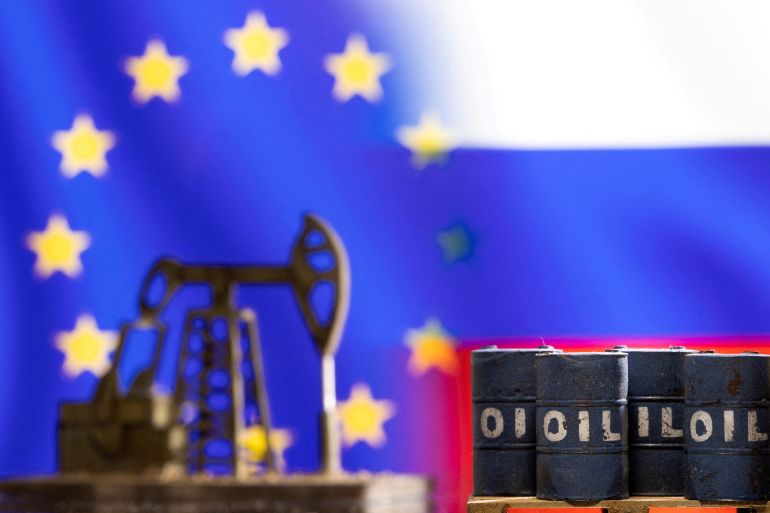EU moves to ban Russian energy imports by 2028
A draft regulation approved by European Union energy ministers would phase out Russian import contracts by January 2028.

By Stephen Quillen and News Agencies
Published On 20 Oct 202520 Oct 2025
Save
European Union states have agreed to halt Russian oil and gas imports by 2028, severing an energy link they fear helps fuel Moscow’s war in Ukraine.
Almost all EU energy ministers voted in favour of the draft regulation, which applies to both pipeline oil and liquefied natural gas (LNG), during a meeting in Luxembourg on Monday.
Recommended Stories
list of 3 itemsend of list
It would require EU members to phase out new Russian gas import contracts from January 2026, existing short-term contracts from June 2026 and long-term contracts in January 2028.
The proposal must now be approved by the European Parliament, where it is expected to pass.
The plan is part of a broader EU strategy to curb Russian energy dependence amid the war in Ukraine – and follows persistent calls by United States President Donald Trump for European states to stop “funding the war against themselves”.
‘Not there yet’
Lars Aagaard, Denmark’s energy minister, called the proposal a “crucial” step to make Europe energy independent.
“Although we have worked hard and pushed to get Russian gas and oil out of Europe in recent years, we are not there yet,” Aagaard said. His country currently holds the EU’s rotating presidency.
The EU has already brought down Russian oil imports to just 3 percent of its overall share, but Russian gas still makes up 13 percent of gas imports, accounting for more than 15 billion euros ($17.5bn) annually, according to the European Council.
Nevertheless, these purchases make up a relatively small portion of Russia’s overall fossil fuel exports, which mostly go to China, India and Turkiye, according to the Centre for Research on Energy and Clean Air.
Advertisement
The EU countries importing the most Russian energy are Hungary and Slovakia, followed by France, the Netherlands and Belgium.
Hungary and Slovakia – which are diplomatically closer to Moscow – both opposed the latest EU initiative, but it only needed a weighted majority of 15 states to pass, meaning they could not block it.
“The real impact of this regulation is that our safe supply of energy in Hungary is going to be killed,” Budapest’s top diplomat, Peter Szijjarto, was quoted as saying by the AFP news agency.
The text approved on Monday allowed specific flexibilities for landlocked member states, which include Hungary and Slovakia.
In addition to the trade restrictions, the EU is negotiating a new package of sanctions against Russia that would ban LNG imports one year earlier, from January 2027.
The EU’s high representative for foreign affairs, Kaja Kallas, said earlier on Monday the new sanctions package could be approved as early as this week.

